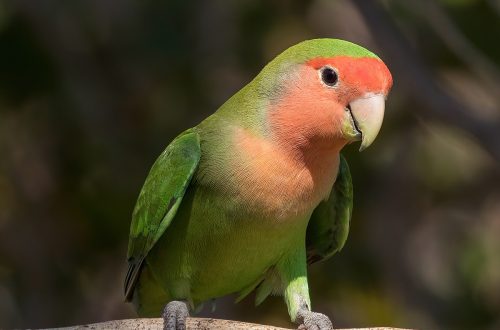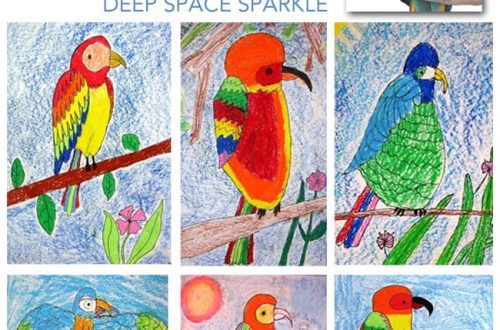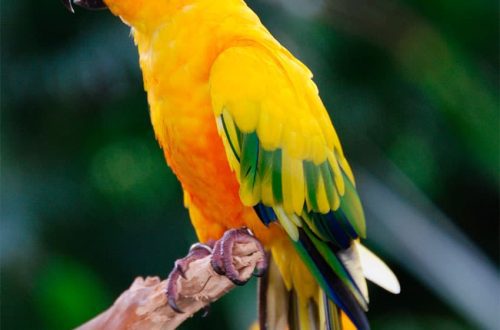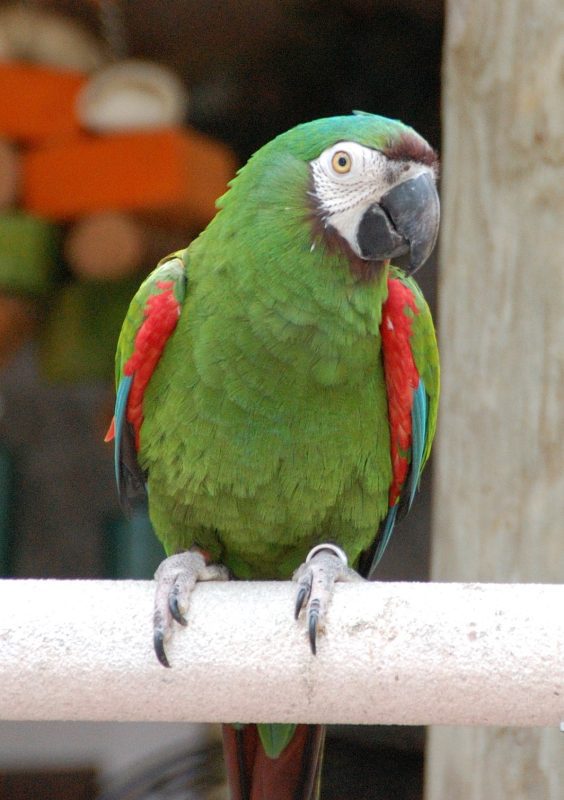
Chestnut Macaw
Contents
Chestnut-fronted Macaw (Ara severus)
Order | Parrots |
family | Parrots |
Race | Ary |
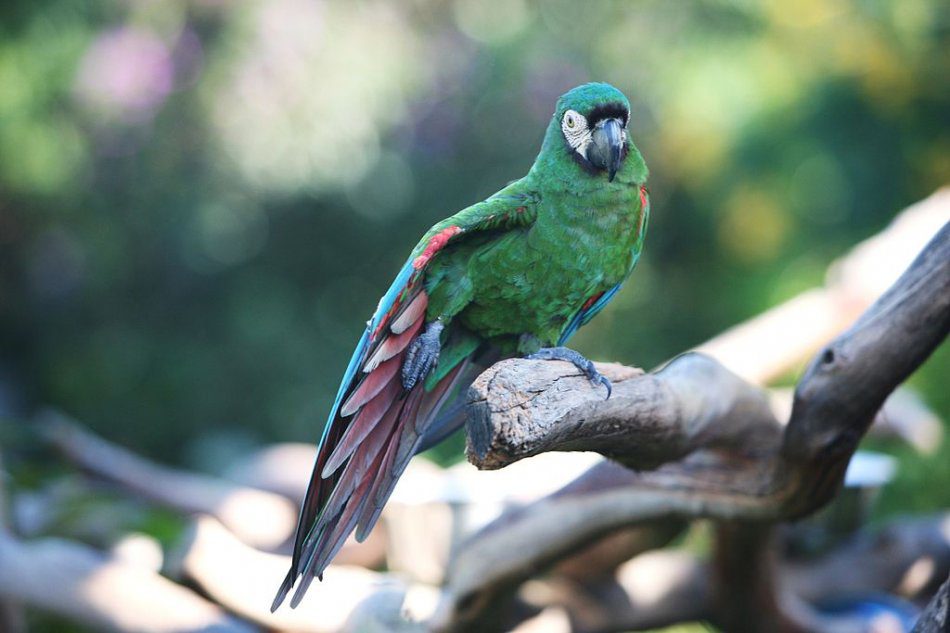
In the photo: a chestnut-fronted macaw. Photo: wikimedia.org
Appearance and description of the chestnut-fronted macaw
The chestnut-fronted macaw is a small parakeet with a body length of about 50 cm and a weight of about 390 g. Both sexes of chestnut-fronted macaws are colored the same. The main body color is green. The forehead and mandible are brown-black, the back of the head is blue. The flight feathers in the wings are blue, the shoulders are red. Tail feathers red-brown, blue at the ends. Around the eyes is a large unfeathered area of white skin with wrinkles and individual brown feathers. The beak is black, the paws are gray. The iris is yellow.
Lifespan of a chestnut-fronted macaw with proper care – more than 30 years.
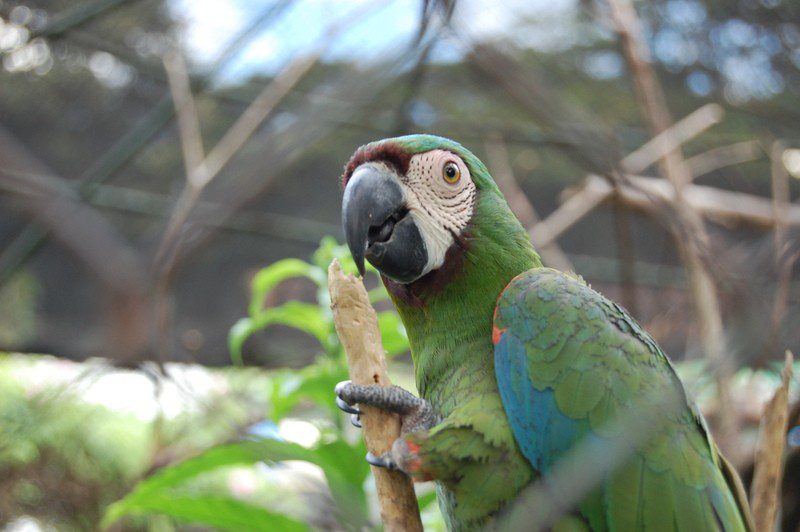 In the photo: a chestnut-fronted macaw. Photo: wikimedia.org
In the photo: a chestnut-fronted macaw. Photo: wikimedia.org
Habitat and life in nature chestnut-fronted macaw
The chestnut-fronted macaw species lives in Brazil, Bolivia, Panama, and also introduced in the USA (Florida).
The species lives at an altitude of up to 1500 meters above sea level. Occurs in secondary and cleared forest, forest edges and open areas with solitary trees. In addition, the species can be found in lowland moist forests, swamp forests, palm groves, savannahs.
The diet of the chestnut-fronted macaw includes various types of seeds, fruit pulp, berries, nuts, flowers, and shoots. Sometimes they visit agricultural plantations.
Usually the chestnut-fronted macaw is quite quiet, so it is difficult to spot them. Found in pairs or in small flocks.
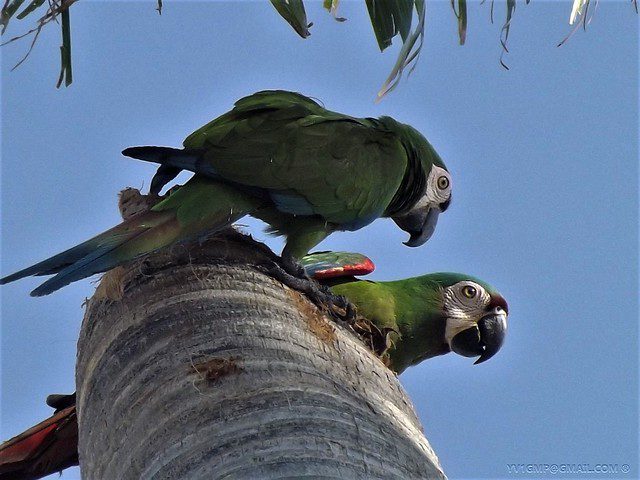 In the photo: a chestnut-fronted macaw. A photo: flickr.com
In the photo: a chestnut-fronted macaw. A photo: flickr.com
Breeding chestnut-fronted macaw
The nesting season for the chestnut-fronted macaw in Colombia is March-May, in Panama February-March, and elsewhere September-December. Chestnut-fronted macaws usually nest at high altitudes in cavities and hollows of dead trees. Sometimes they nest in colonies.
The clutch of the chestnut-fronted macaw usually contains 2-3 eggs, which the female incubates for 24-26 days.
The chestnut-fronted macaw chicks leave the nest at about 12 weeks of age. For about a month, they are fed by their parents.



